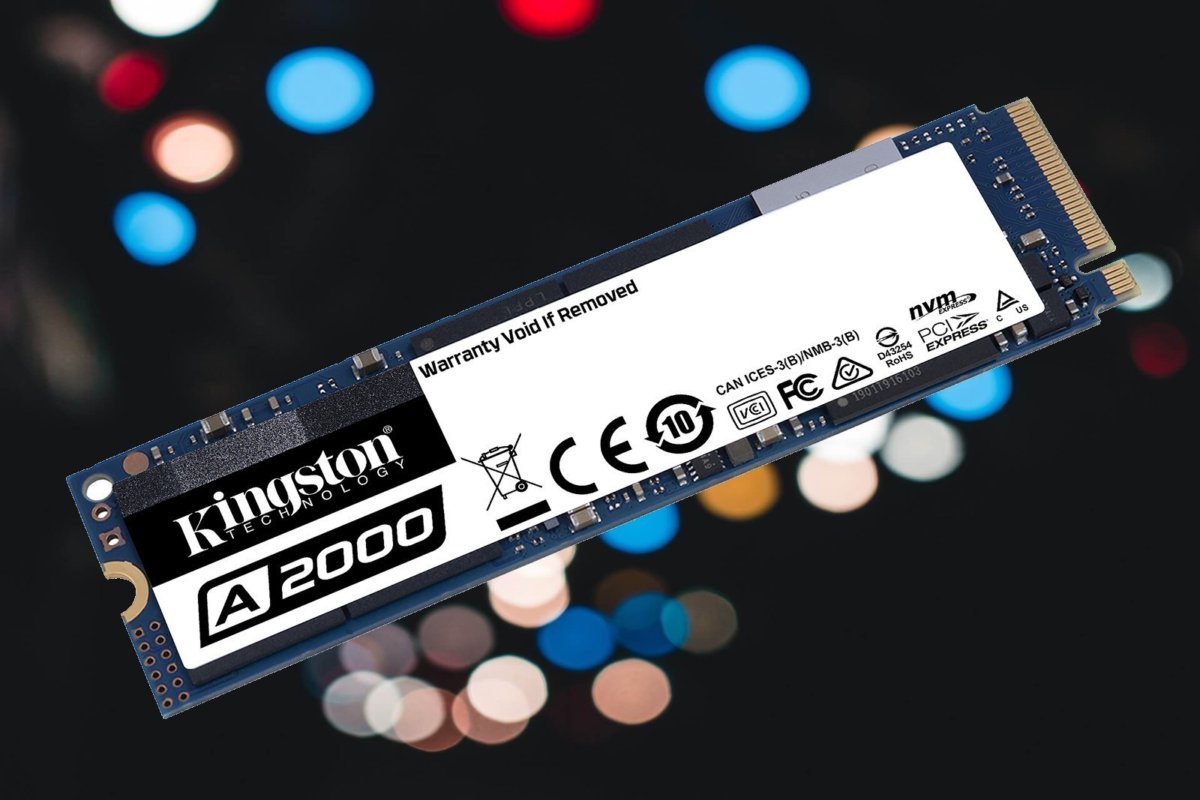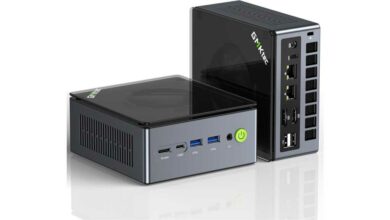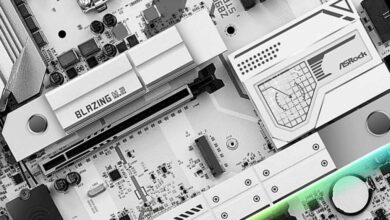
As out headline trumpets, the large data here is a mannequin new low in NVMe SSD prices, at 10 cents per gigabyte. The drop comes courtesy of Kingston’s new A2000, which moreover gives surprisingly good effectivity the overwhelming majority of the time.
Design and picks
The A2000 is a 2280 (22 mm massive, 80 mm prolonged) M.2, PCIe 3.Zero x4, NVMe SSD, that’s accessible available on the market in 250GB (presently , 500GB (presently $60 on Amazon) and 1TB (presently $100 on Amazon) capacities. I’ve to confess I did a double-take after I observed these prices, as they’re considerably lower than these of the Addlink S70, which itself set a price report solely a month or so prior to now. Commodity objects lastly! Principally: 1TB seems to be the sweet spot in worth per gigabyte as of late. On the time of this writing, higher efficiency 2TB/4TB SSDs, SATA or NVMe, had been nonetheless all by the 20-cent-per-gigabyte fluctuate.
The A2000s use a Silicon Motion (SMI) 2263 controller and 96-layer TLC NAND. The NAND is all on one side of the board, making it skinny ample for virtually any laptop computer pc computer laptop computer pc. Caching is achieved by treating the TLC as SLC, or one-bit NAND. Writing a single bit is way faster than writing three.
Kingston gives a pleasing five-year assure on the A2000, though the TBW (TeraBytes that may in all probability be Written) scores aren’t notably massive for this deadline: 150TB per 250GB of efficiency. Nonetheless, that’s perhaps increased than the widespread shopper will write in 10 years. TBW scores are generally used to provide a corporation an out in case anyone decides to profit from a consumer drive an an identical to the A2000 in a high-transaction server.
Effectivity
As I discussed up excessive, the A2000 is an environment nice performer, if not pretty on a par with the quickest drives obtainable accessible available on the market. I examined the 1TB mannequin, and Kingston prices the 500GB for the same 2.1GBps write effectivity. Nonetheless, because of it has fewer chips to jot down all by way of, the 250GB mannequin is rated to jot down at only one,100MBps most.
 IDG
IDGThe 1TB mannequin doesn’t decelerate all by way of fairly prolonged writes, as evidenced by our 48GB single file write verify. It did, nonetheless, decelerate to solely beneath 500MBps by the 450GB write verify. Within the midst of the primary run, that occurred after writing about 50GB of data, nonetheless in two subsequent runs write speeds didn’t drop to 500MBps until the roughly 150GB mark.
 IDG
IDGWith the great caching distributors use as of late, it’s possibly that additional TLC was dealt with as SLC all by the latter runs. Uncover that SLC cache tends to be allotted in proportion to the entire efficiency of the drive, so it’s an beautiful guess that the 500GB and 250GB variations will drop to 500MBps considerably sooner.
 IDG
IDGThe upshot is that you simply simply merely’ll should take care of mere SATA speeds on these unusual occasions everytime you write a substantial quantity of data to the drive. Which is ready to embrace an preliminary cloning, nonetheless by and big I’ll give the drive a cross due to relative rarity of the phenomenon.








